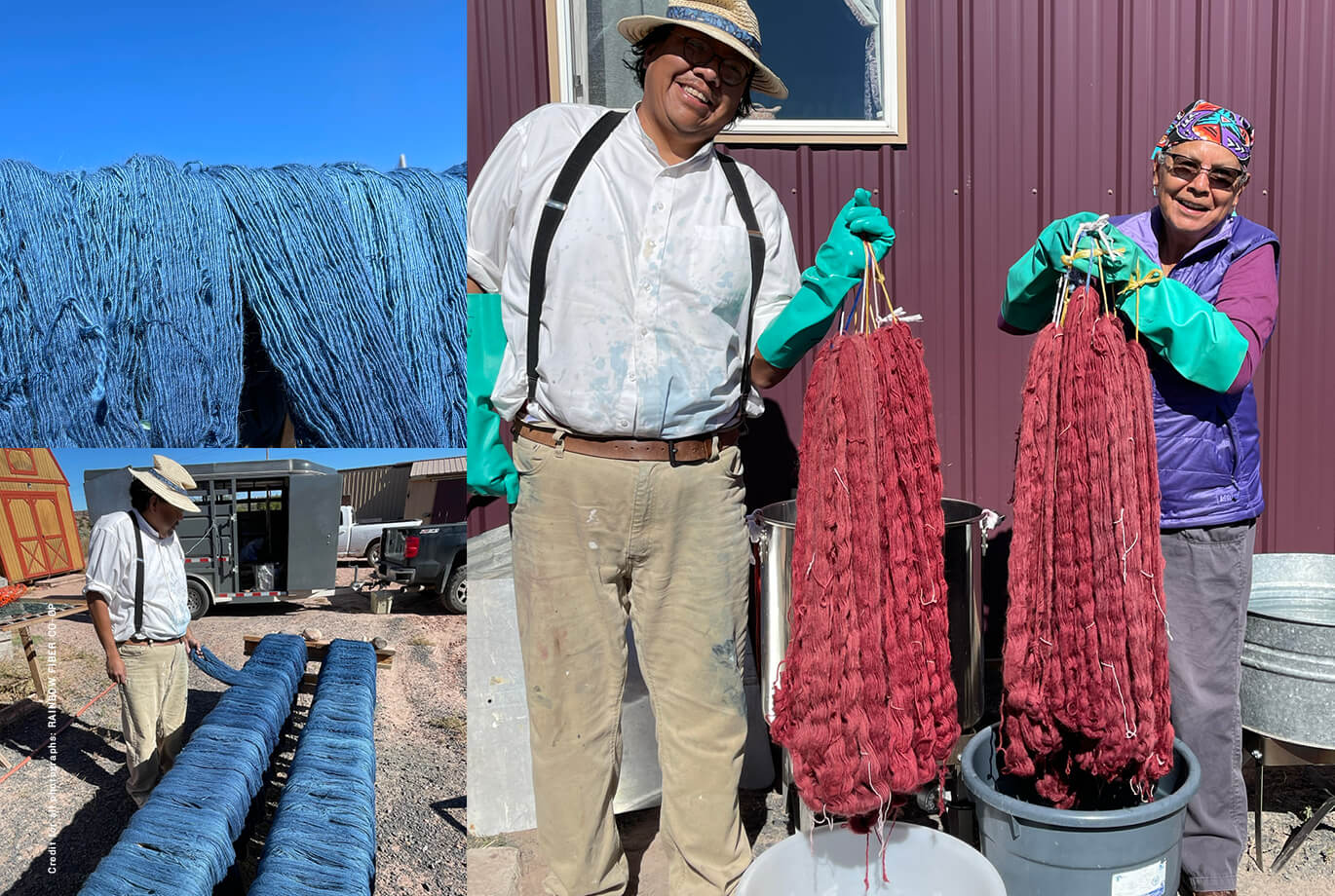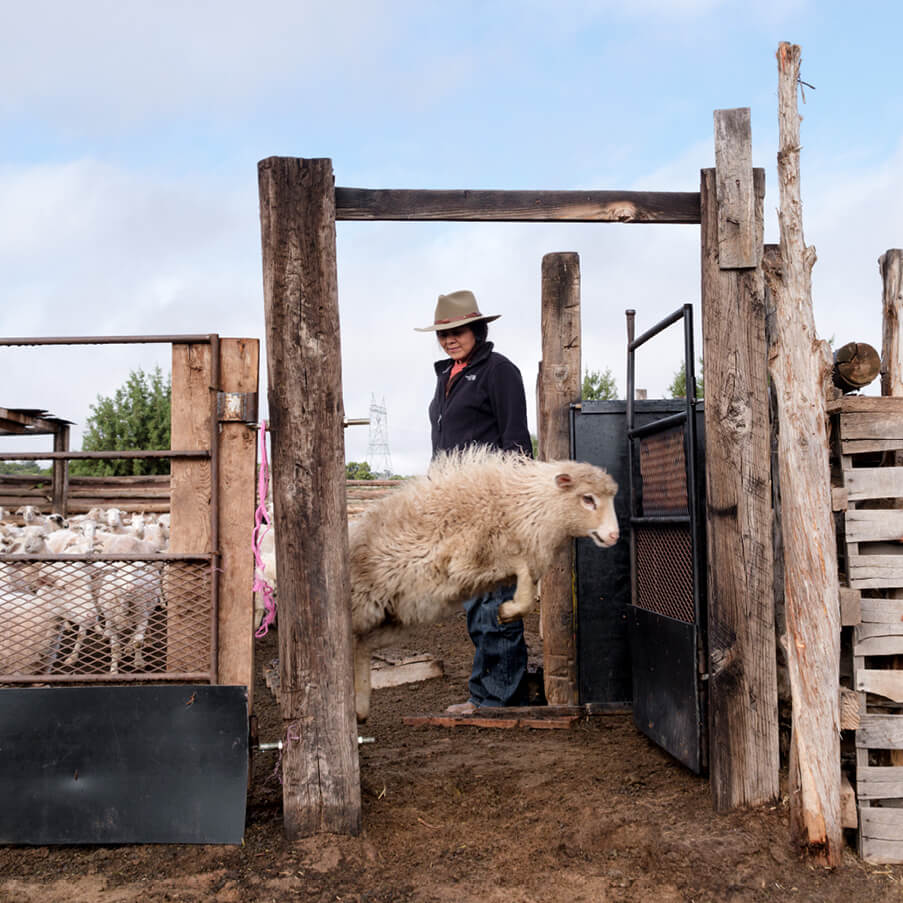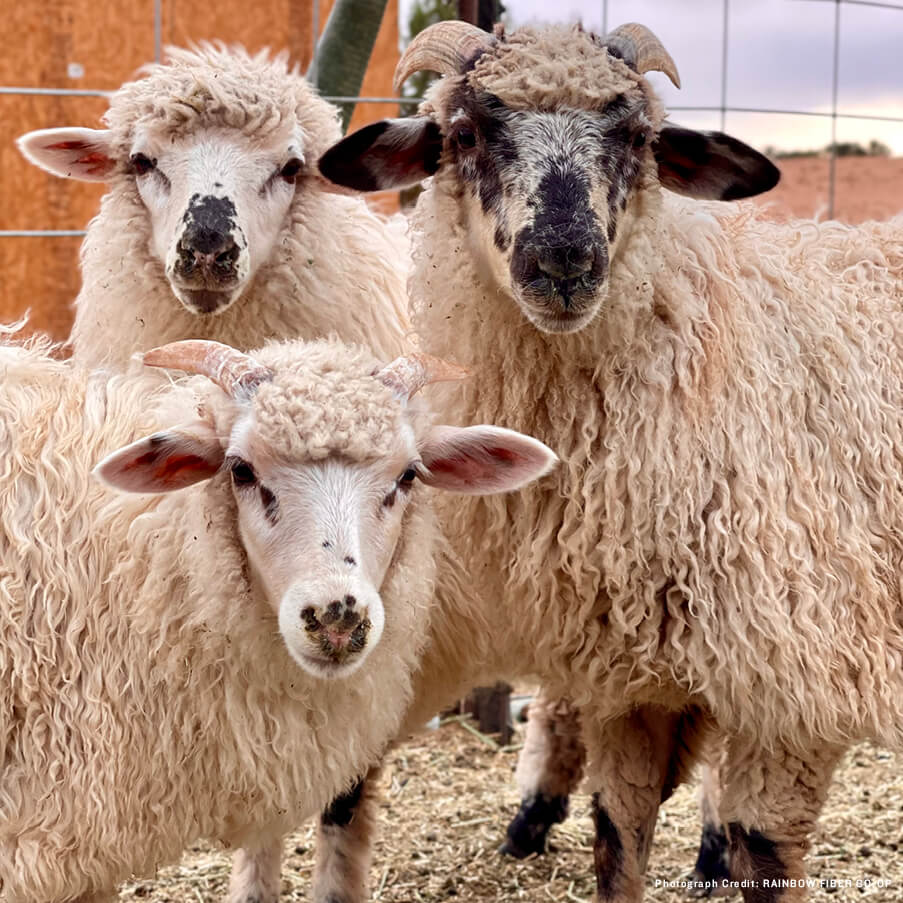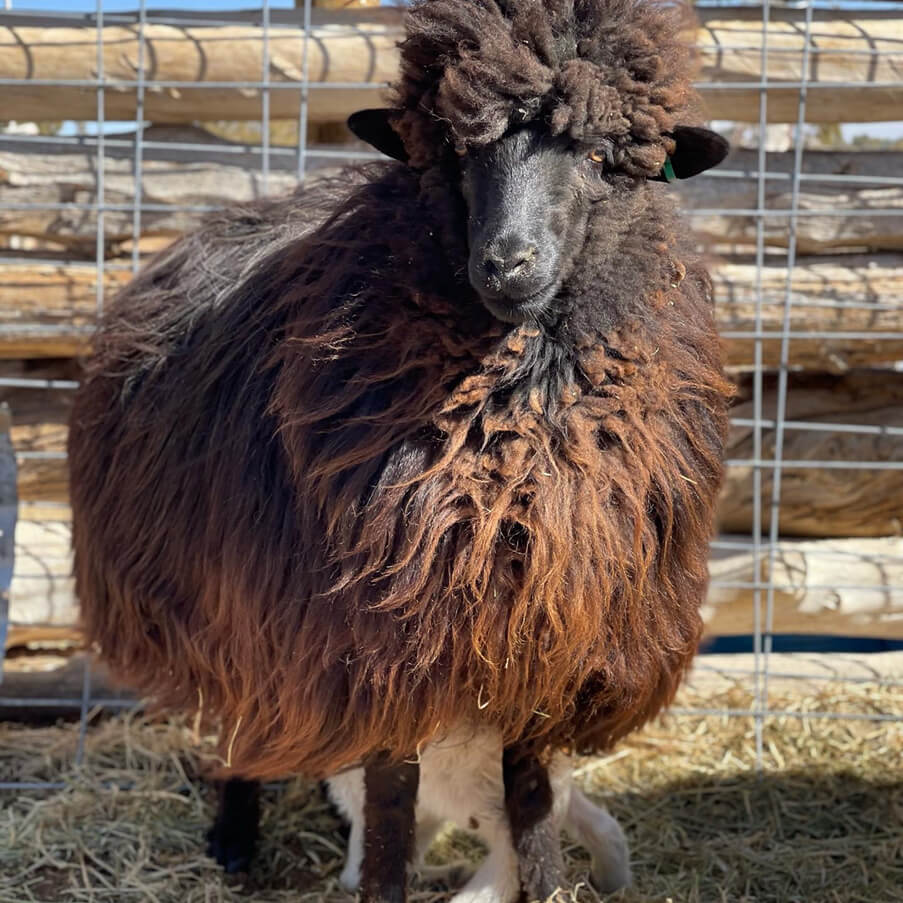A pandemic, poor prices – and going digital with traditional skills
We’re taking one step with One Earth. One of the projects we’ve chosen to support is to keep pastoral skills alive in America’s southwest. Here’s why:
“It keeps the family together.” This is the importance of raising Navajo-Churro sheep for Marjorie Curley (she/her).
Marjorie tends her flock on the Navajo Nation, Arizona. These sheep are incredibly well adapted for life in the harsh conditions. Originally imported to America in the 16th century, First Nation people acquired them through trading with the Spanish. They became known as, T’áá Dibé (the First Sheep).
“My grandmother died at the age of 110. She worked sheep all her life – it made her healthy. I learned from her how to treat them with medicinal herbs. They would always take their sheep back towards the mountain in winter – because of the sage, the juniper, the cliff-rose – all of those are very bitter plants. And that’s what they used to de-worm their animals with. These are things I’ve learned from my grandmother.”
But Diné shepherds have faced tough resistance in national and global trading markets. Despite its quality, traders have deemed the wool inferior, encouraging cross breeding with fine-wool rams. Offensively low trade prices aren’t the only challenges the community has had to face. Covid 19 hit the Diné people particularly hard. The virus spread rapidly through the Navajo Nation in March 2020, with more cases per capita than any US state. Many people were lost, and many shepherds among them.
The future, however, can be brighter. Rainbow Fiber co-op director Nikyle Begay (they/them) told Spin Off Magazine how they were moved to action. Using their experience as a shepherd, and uniting with fellow shepherd Kelli Dunaj (she/her), the co-op took shape.
Nikyle notes how the flocks underpin traditional life. And while traditional values are vital, the co-op’s work is also focused on looking forward – weaving together rural shepherding with 21st century e-commerce. Proceeds from the co-op’s new online yarn shop go straight back into nurturing community values.


Communities are brought together by tending the flocks, processing wool and weaving. The Diné people honour plant medicines and live in balance with the unique biodiversity of the range. Taken together, this preserves Diné culture.
Take one step for One Earth. If this project excites you, please join us in shouting about it.
We’ll give $1 every time you comment and share using #OneStep4OneEarth. Help us spread the word! Vivo X One Earth will support community giving to a total of $30k.
How will this funding be used? One Earth will help the co-op sustain their digital Navajo-Churro yarn shop to provide reliable income. They’ll also be able to support traditional weaving arts in their communities and help with the expansion of a non-profit mill.
If we act TOGETHER we can tackle the issues facing our planet. Solutions exist today, so we’re taking one step with One Earth to champion three Indigenous-led projects.
They all represent solutions our planet needs now. With help, these projects can grow, driving change from the ground up. Each one will:
- protect lands that store carbon and contain rich biodiversity
- support farmers practicing regenerative farming methods
- preserve cultural knowledge – (elders know a thing or two about how people and planet can work in harmony!)
Thank you – or “Axéhéé” (in Diné) - for your support!







